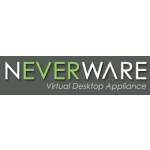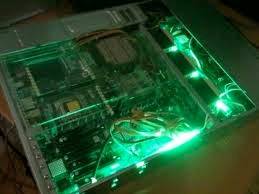There was once a time when students may have had access to better computers at school than they did at home. But with the explosion of consumer technologies, that’s not the case. Arguably now many students carry more powerful computing devices in their pockets than sit on their desks at school.

Schools struggle to keep up with continually changing technology. They simply cannot afford to replace hardware at the rate with which upgrades are released. And as such, the technology infrastructure of most schools is severely lacking.
Jonathan Hefter has built something that could solve that.
Hefter is the CEO of Neverware, a startup that addresses this huge gulf between schools’ existing hardware and the demands of new software. Neverware provides a virtualization platform, what he calls “the ‘last mile’ in cloud computing.”
Virtualized desktops aren’t new. There are several prominent companies that are addressing this for enterprise customers. But even though some liken school districts’ technology implementations to ones in corporations, there are some substantial differences – budgets being the most obvious.

Neverware is designed lean. In fact, Hefter is currently bootstrapping the endeavor (although he is starting to look for funding). But the emphasis on efficiency isn’t so much about Hefter’s resources, as the resources of the schools he’s aiming to support with Neverware.
Neverware’s flagship product is the JuiceBox, a single server appliance that when connected to a LAN will power up to one hundred old machines with Windows 7. In case you haven’t checked the system requirements for Windows 7 lately, here they are: 1 GHz or faster 32-bit or 64-bit processor, 1 GB RAM, 16 GB hard disk space, and a DirectX 9 graphics device. So how old can those “old machines” be? Hefter says he “hasn’t found a desktop yet” that he can’t make run.
The Juicebox generates a private, local cloud, something that addresses many of schools’ concerns about privacy, security, and reliability. Hefter uses the analogy of electrical versus gas-powered cars to compare the energy and environmental waste of the PC industry with the efficiency of the Neverware project. It’s a “single repository of computing power,” and with it, schools need only focus on updating one machine, not many.
Currently Neverware is running in two pilot programs in schools in New Jersey, but Hefter says there are plans to go to market with JuiceBox in the next few months.










